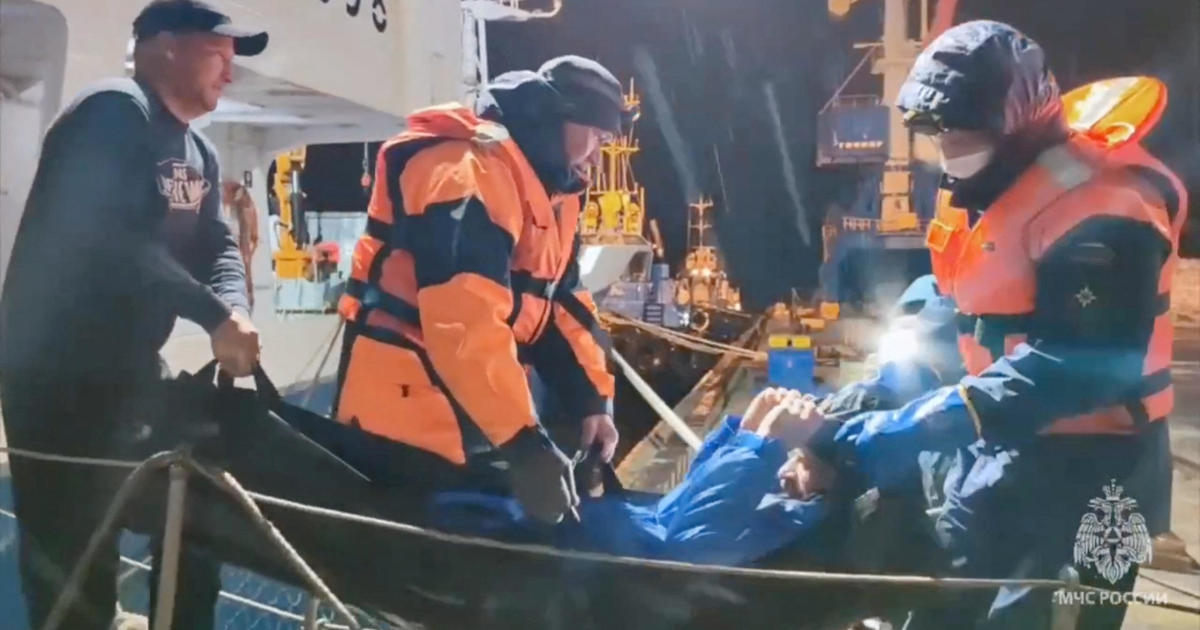A harrowing tale of survival emerged from the stormy Sea of Okhotsk, where a Russian man endured over two months adrift in a tiny inflatable boat after its engine failed. While this incredible feat of survival captivated the world, it also carries a heavy price—the loss of his brother and nephew who perished during the ordeal. This incident highlights the unpredictable dangers of maritime voyages, the importance of thorough preparation, and the remarkable resilience of the human spirit.
The Epic Survival of Mikhail Pichugin
Mikhail Pichugin, a 46-year-old Russian man, embarked on a whale-watching expedition in the Sea of Okhotsk with his brother and nephew in early August. Their journey, initially filled with anticipation, took a drastic turn when their boat’s engine gave way, leaving them adrift in one of the world’s harshest maritime environments. The Sea of Okhotsk is notorious for its unpredictable gales and freezing temperatures. The trio had provisions for approximately two weeks, a stark contrast to the two-month ordeal they faced. This underscores a crucial lesson about the importance of over-preparation when venturing into such perilous waters.
Facing the Elements
The lack of engine power meant the small inflatable boat was entirely at the mercy of the sea’s capricious nature. The men battled relentless storms, freezing temperatures, and the constant threat of dehydration. The limited supplies quickly dwindled, leaving them facing starvation and exposure. Pichugin’s remarkable resilience allowed him to persevere, though details surrounding his exact survival strategies remain unclear. News reports mention his incredible weight loss, having dropped half his body weight by the time he was rescued, a testament to the arduous challenges he faced daily.
The Rescue and its Aftermath
After more than two months at sea, a fishing vessel, the Angel, spotted Pichugin’s tiny craft on its radar. Initially mistaking it for debris, the crew investigated and discovered Pichugin, severely emaciated but miraculously alive. Sadly, they also found the bodies of his brother and nephew, tied to the boat to prevent them from being swept away by the waves. This tragic discovery added a profound layer of sorrow to this already extraordinary survival story. Pichugin’s physical condition was dire, suffering from dehydration and hypothermia. However, he received immediate medical attention and has since shown signs of recovery.
Investigating the Tragedy: A Call for Improved Safety Regulations
The Russian prosecutor’s office launched an investigation into the deaths, focusing on potential violations of safety regulations. This inquiry aims to shed light on contributing factors leading to the tragic loss of life and to ensure such incidents are prevented in the future. The investigation will critically examine whether adequate safety measures were in place for the voyage and whether necessary precautions were observed. This includes assessing the condition of the boat and the adequacy of their supplies for such a challenging maritime endeavor. This scrutiny underscores the importance of comprehensive safety measures and the legal accountability for those involved in organizing or participating in hazardous maritime trips.
Lessons from Past Maritime Disasters
The Pichugin incident evokes parallels to other maritime survival stories, highlighting the critical role of preparedness. The case echoes previous survival stories from sailors like Tim Shaddock, whose experience last year resonated with the global community due to its remarkable survival aspect. These narratives consistently reinforce the vital need for robust survival training and the necessity of extensive planning, encompassing aspects of navigation, communication, emergency procedures, and adequate provision of supplies before embarking on perilous journeys at sea. These past events and their analyses can be incorporated into updated and enhanced safety guidelines in maritime sectors.
The Power of Human Resilience
Despite the tragic outcome for two members of the family, Mikhail Pichugin’s survival stands as a testament to the enduring strength of the human spirit. His perseverance in the face of overwhelming adversity serves as a powerful example of resilience. Though profoundly saddened by the loss of his loved ones, the incredible feat of his survival story demonstrates how the human capacity for endurance and the will to live can propel individuals to overcome seemingly insurmountable odds. This underlines the psychological strength required to face isolation, despair, and the formidable power of the ocean. This inspirational story reminds the global community of the ability of the human body and will to persevere even in the toughest environments.
The Importance of Preparedness
Pichugin’s ordeal starkly emphasizes the critical importance of thorough preparation for maritime adventures. While the men had some supplies, they were insufficient for the duration of their ordeal. This underlines the need for adequate provisions, comprehensive safety training, and rigorous risk assessment. The incident underscores the need for individuals to meticulously plan voyages into potentially hostile environments.
Takeaways
- Thorough planning and preparation are paramount for any maritime journey, particularly in challenging environments like the Sea of Okhotsk.
- The provision of adequate supplies, including food, water, and emergency equipment, is crucial for survival at sea.
- Robust safety training and awareness are essential to mitigating the risks of maritime accidents.
- Investigating such incidents can identify systemic failures and implement effective safety regulations.
- The remarkable resilience of the human spirit enables survival even in dire circumstances.









